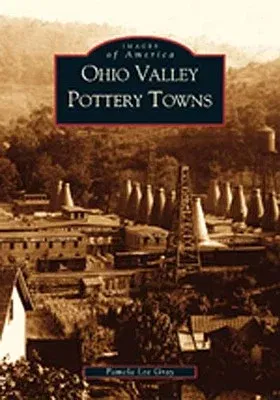Pamela Lee Gray
(Author)Ohio Valley Pottery TownsPaperback, 25 November 2002

Qty
1
Turbo
Ships in 2 - 3 days
In Stock
Free Delivery
Cash on Delivery
15 Days
Free Returns
Secure Checkout

Part of Series
Images of America
Part of Series
Ohio
Print Length
128 pages
Language
English
Publisher
Arcadia Publishing (SC)
Date Published
25 Nov 2002
ISBN-10
0738520322
ISBN-13
9780738520322
Description
Product Details
Author:
Book Format:
Paperback
Country of Origin:
US
Date Published:
25 November 2002
Dimensions:
23.98 x
16.61 x
0.86 cm
ISBN-10:
0738520322
ISBN-13:
9780738520322
Language:
English
Location:
Chicago, IL
Pages:
128
Publisher:
Series:
Weight:
290.3 gm